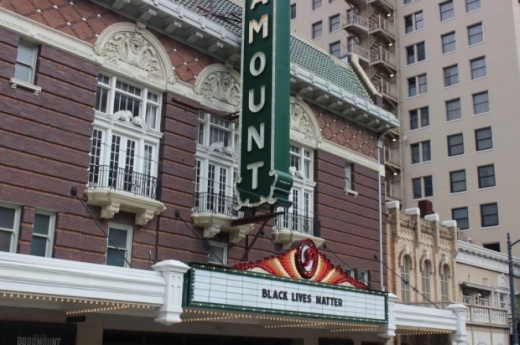The video of Floyd’s death captured by bystanders, which showed him repeating, “I can’t breathe” while then-Officer Derek Chauvin knelt on Floyd’s neck, was shocking and unsettling for many. But Chas Moore, executive director and founder of the Austin Justice Coalition, said in a June 1 Facebook Live conversation with Austin Mayor Steve Adler that such an event is nothing new for black people in the U.S.
“The fact that this has become the new normal for so many black men and black people in general in this country is the reason why we see so much anger and angst in the streets today,” Moore said.
The Austin Justice Coalition is among the groups that called for the firing of Austin Police Chief Brian Manley, Assistant Chief Troy Gay and Assistant City Manager Rey Arellano, who oversees public safety, after police shot and killed an unarmed man, Michael Ramos, on April 24.
But racism in Austin goes deeper than the police department, Moore said. It also extends to microaggressions, including not being able to move up in the workplace, feeling stares as the only black person in a fancy restaurant or feeling out of place in the once-black neighborhoods where some residents grew up.
"I think the wave of racism in Austin is so unique because it’s so subtle. It’s not people calling you the N-word on a daily basis,” Moore said.
Moore said it is important for non-black residents to listen to black Austinites. This message comes after the Austin Justice Coalition canceled its Sunday protest, which Moore said was designed to be a space primarily for black people to voice their anger, because of concerns the event would be co-opted by outside groups looking to incite violence.
Austin police and government officials said over the weekend they saw evidence of violence disrupting peaceful demonstrations.
When the protests end, Moore said the community has to get to work on substantive change, and policing will be a part of that. As City Council prepares to go through its budget process, he said leaders will face a question of whether to keep “investing in an institution that leads to black and brown deaths.” Leaders can also make sure they are creating an environment where black-led nonprofits and black-owned businesses can thrive, Moore said.
As the weekend protests showed, many of Austin’s racial issues are not unique to this city. But that does not mean they are insurmountable, Moore said.
“That’s my goal—to make Austin become the first equitable city in America. I think we can do that,” he said.





